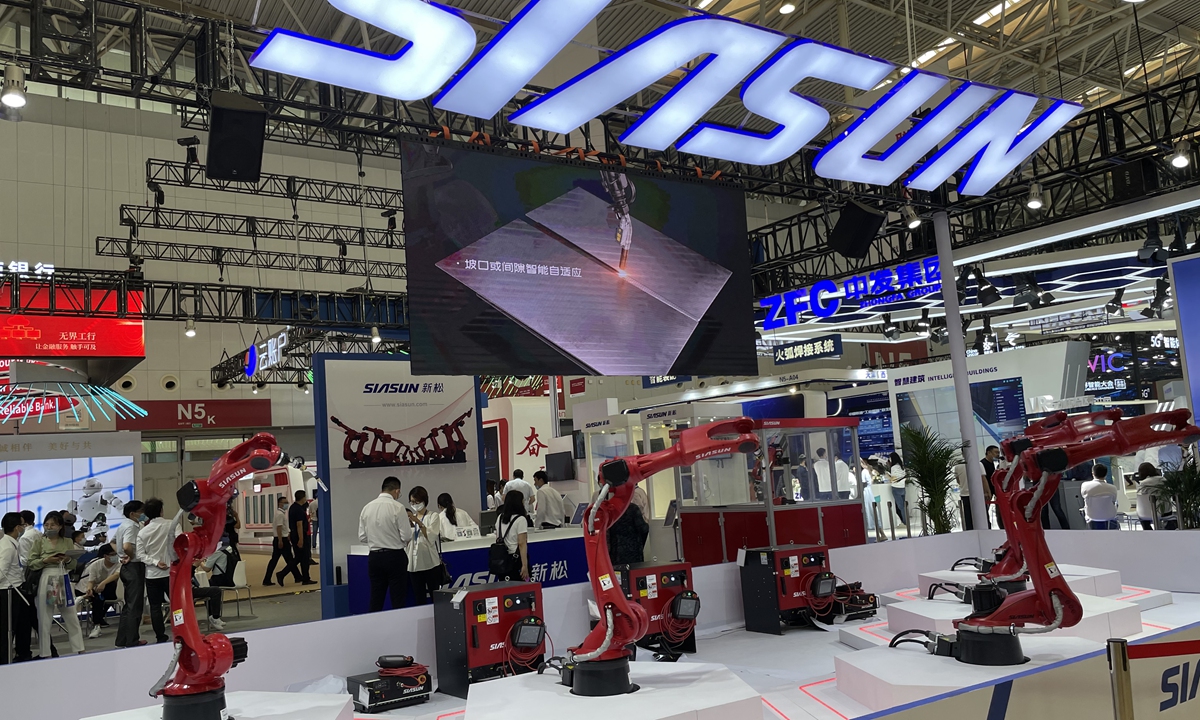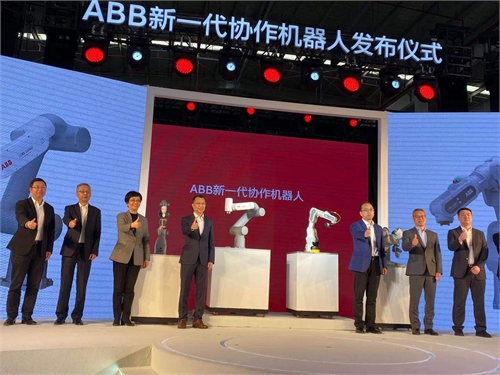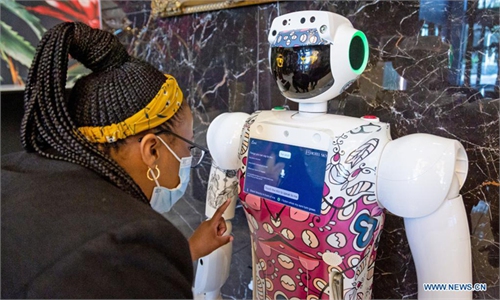Self-reliance among Chinese high-tech firms speeds up amid volatile China-US ties

Robots of SIASUN at the fifth World Intelligence Congress (WIC) in Tianjin on Friday Photo: Shen Weiduo/GT
While the US is racking its brain to rally against China and cracking down on China's tech rise, Chinese high-tech firms are now reaching a "silent consensus" and speeding up efforts to break reliance on the country, and drive localization efforts along the industrial chain from chips, operating system and supercomputers to robots.
During the ongoing fifth World Intelligence Congress (WIC) in North China's Tianjin Municipality from Thursday to Sunday, the Global Times observed that exhibition and products highlighted with "Made in China" and "researched and developed in China" were especially popular.
Almost all industry giants from private firms like Huawei and Tencent, to state-owned companies like China Electronics Corporation (CEC) and rolling stock manufacturer CRRC Corporation have exhibited their latest products featuring self-developed core technology "grasped in its own hands."
Staff from these firms said the US' continuous crackdown on China is adding fuel to the self-reliance drive across China. Chinese firms, led by high-tech ones, are trying to source homegrown parts and shift to domestic suppliers even if they might be more expensive compared with some foreign counterparts.
"Amid the complicated external situation, more patriotic entrepreneurs came to us and voluntarily seek purchase," a staff surnamed Jin at the SIASUN Robot and Automation Company, told the Global Times during the congress on Friday.
We're also hoping to take the chance and break the foreign monopoly in the industrial robot market, Jin said, adding that the localization drive gives them more confidence to invest and march forward.
Shi Yixuan, a staff at Kylinsoft under the CEC, echoed Jin, saying that the Huawei ban has pushed more firms' use of self-developed operating systems - a market that was dominated by foreign giants.
The firm's self-developed operating system Kylinsoft V10 was officially launched on August 13 last year. The system can offer a similar experience with Microsoft's Windows system, and can also support China's self-made CPUs, including those from Phytium Information Technology Company, which was added to the US Entity List in April this year.
The core of competition among many countries in the intelligent industry is the mastery of the underlying technology and core technology. China's own CPUs and operating systems are being used in state-owned enterprises and important key industries, which will protect the country's core data to the greatest extent and fundamentally protect China's national security, Shi told the Global Times on Friday.
Shi believes that in the future, China's collective breakthroughs in core technologies in various fields will have important strategic significance in the current complex international situation.
However, industry analysts and company representatives told the Global Times that despite the rapid development and rising self-sufficiency, strength in the high-tech field takes time to accumulate, and that could be a long time.
For instance, in the CNC machine sector, the overall performance of China's high-end CNC machine tools still has a considerable gap with the world's top level, and China still relies on others in core technology in the field, Yu Xubo, chairman of China General Technology (Group) Holding Company, or Genertec, said at a keynote speech of the congress.
In recent years, through the integration of several machine tool firms and other enterprises, the group has established a "national team" for China's machine tool industry, Yu said, adding that the firm will strive to catch up, become a world-class high-end machine tool equipment group with independent core technology and global competitiveness.
In the past, due to geopolitical reasons, we found that we've been strangled in many key technologies. What is the most important way for Chinese companies to catch up in a short period of time, or even exceed the international advanced level is the most important problem, Li Jun, President of Dawning Information Industry Company, or Sugon, told a forum during the congress.
Li suggested China focus more resources in the artificial intelligence (AI) sector to shorten the time that China would take to surpass others, where China has its strength.
According to the Artificial Intelligence Development Report 2020 of the Tsinghua University Artificial Intelligence Research Institute and other departments, in the past decade, the number of global AI patent applications exceeded 520,000, and the number of patent applications in China was 389,571, ranking first in the world, accounting for 74.7 percent of the global total.
While Li cautioned that China is the world's leader in the application scenarios of AI technology, the basic computer technology of AI such as chips and operating systems has shortcomings.
"It will take 10 years or even longer to completely get rid of the predicament," Li said, recommending Chinese firms formulate a complete industrial chain led by industry giants to make China a global leader in the field.



